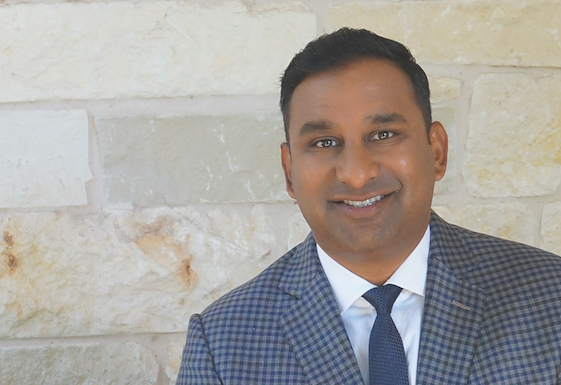Vinyl Manohar, the 36-year-old co-founder and managing principal, acquisitions, development and strategy at Austin, Texas-based Twin Crest Capital, has immersed himself in commercial real estate since his early 20s. After “shaking the tin cup” to raise his first US$2 million and start his own business, Manohar’s group has invested in 19 deals and is currently raising US$74 million for another six deals in the pipeline.
He was voted into the prestigious University of Texas Real Estate Council as a hotel expert on the first try, and he also makes time to mentor students in University of Texas at Austin’s McCombs School of Business. But he defines success by what someone contributes to society. “I have a long way to go,” he says. “I’m just getting started.”

HOTELS: What trends are you observing? What has legs and what do you think will go by the wayside?
Vinyl Manohar: When we look at opportunities in commercial real estate, we don’t only look at investing in or developing an asset — we look to see if there is an opportunity to invest in the space overall. The space I see as the next big thing is modular construction. However, it will take more manufacturing facilities nationwide to decrease construction and transportation costs.
The other trend I see is franchise agreements going from 20 years down to 15 and 10 years in the future. Right now, you’re seeing a lot of adaptive reuse developments, but a lot of those deals are extremely expensive and will become cost-prohibitive down the road.
As far as what will go by the wayside, I think hoteliers and brands that allow dual or triple brands are a passing fad. I personally believe that the only reason people do it is to shield competition from entering their spaces and taking hits at their bottom lines. I think it’s very confusing for the guest.
H: How prevalent is the old boys’ network in your discipline? Has it changed?
VM: It’s personally taken me since I started my commercial real estate career in 2006 until now to build rapport, respect and relationships with the brands, and to show them that I’m a serious player in the future hotel space. The old boys’ network is still very prevalent, especially for hoteliers who are taking over their parents’ networks and growing that space with their own capital sources. They’re getting first looks at deals or special financing packages from the brands. I personally am seeing that for myself as well, starting within the past couple of years.
H: How are younger professionals creating their own networks? How do you develop your network?
VM: Younger professionals are networking by being more transparent with their needs and connecting with individuals or groups that can execute. It’s not just about yourself. That’s the mentality I try to lead our organization with — how can we help one another? What’s in the best interest of not just ourselves, but our neighbors?
H: What do you think are changing needs of next-gen leaders?
VM: When I look for members to join our team, I look for an exact skill set — a certification or a qualification. I would say that the older generation is more referral-based. We want to give everyone an equal opportunity to succeed. Another thing I see is that the younger generation is much more family-oriented. I have two young kids myself and for me, that’s the most important thing. I spend the morning with them and go into work a little later, then I’ll work through lunch and come home for dinner.
H: Describe the things that you try to do every day, and why do you do them.
VM: I’m a creature of habit. I make my bed, work out, eat healthfully, meditate, read and pursue existing and potential opportunities. I believe that if I feel my best, then I can be my best self.
H: What’s your best advice to younger people in your field?
VM: Before they have the opportunity to start a relationship or get married, I would do exactly what I did; get in the office at 5 a.m. and leave at 10 p.m. or 11 p.m. — just work your tail off. Absorb as much knowledge as you possibly can.
Also, absorb different cultures around the world. That in itself will create opportunities for you and change your perspective on how you look at different investment opportunities or relationships through networking. At the end of the day, people want to do business with people they connect with, and you have the opportunity to connect with more people by having more experiences yourself. Become worldly.
H: To what do you attribute your success?
VM: I don’t feel successful or like I have accomplished anything. I feel that I need to work harder, surround myself with the brightest minds, whether in real estate or not, just to get diversity of thought. I attribute my success to acting as though I have not yet attained my goal. I don’t think success is defined by monetary value. It’s defined by what you’re contributing back to society.
